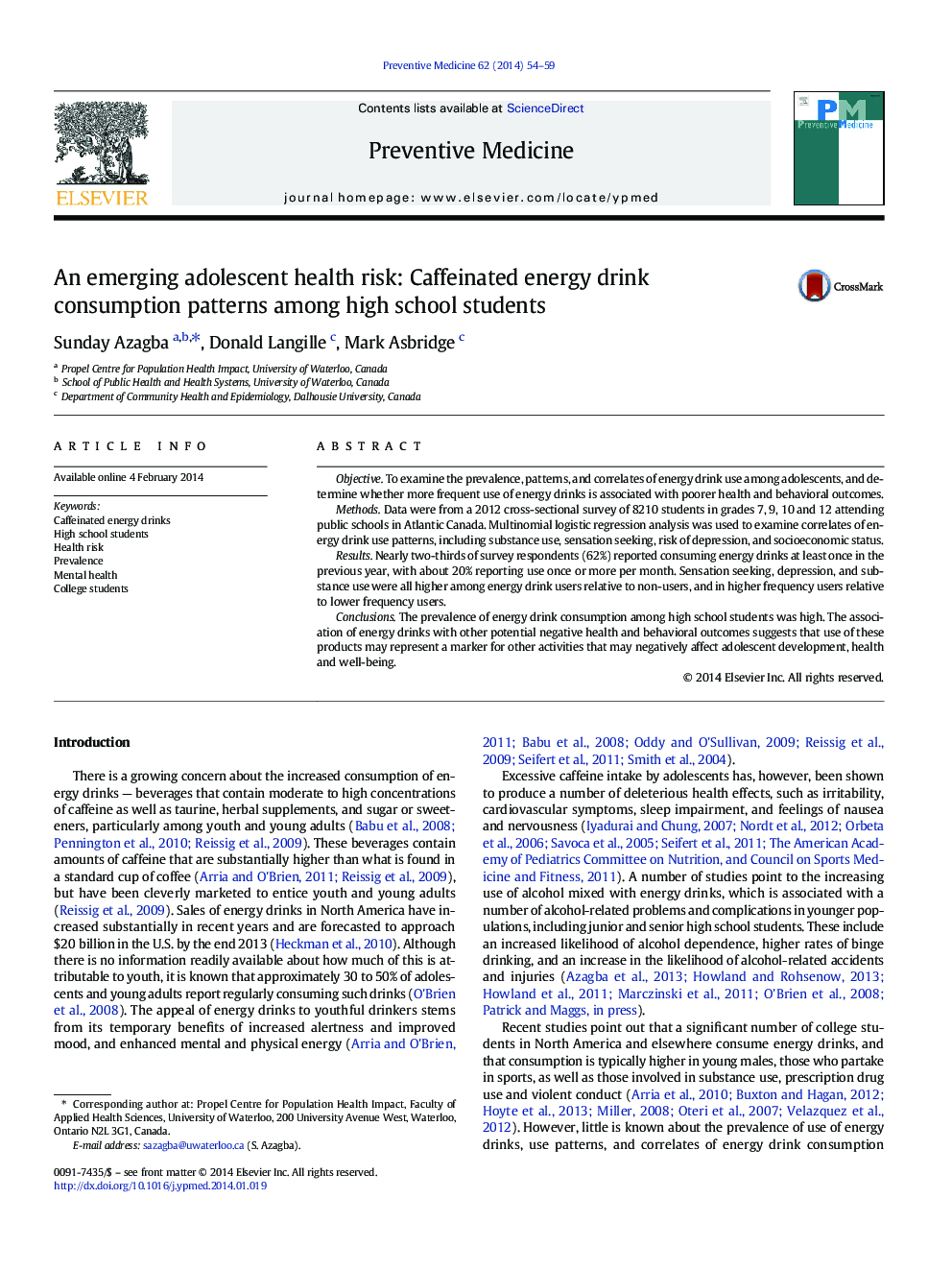| Article ID | Journal | Published Year | Pages | File Type |
|---|---|---|---|---|
| 6047256 | Preventive Medicine | 2014 | 6 Pages |
â¢A significant proportion of high school students reported using caffeinated energy drinks.â¢Likelihood of depression and other problem behaviors was associated with higher frequency user.â¢The likelihood of consuming energy drinks was higher for males relative to females.
ObjectiveTo examine the prevalence, patterns, and correlates of energy drink use among adolescents, and determine whether more frequent use of energy drinks is associated with poorer health and behavioral outcomes.MethodsData were from a 2012 cross-sectional survey of 8210 students in grades 7, 9, 10 and 12 attending public schools in Atlantic Canada. Multinomial logistic regression analysis was used to examine correlates of energy drink use patterns, including substance use, sensation seeking, risk of depression, and socioeconomic status.ResultsNearly two-thirds of survey respondents (62%) reported consuming energy drinks at least once in the previous year, with about 20% reporting use once or more per month. Sensation seeking, depression, and substance use were all higher among energy drink users relative to non-users, and in higher frequency users relative to lower frequency users.ConclusionsThe prevalence of energy drink consumption among high school students was high. The association of energy drinks with other potential negative health and behavioral outcomes suggests that use of these products may represent a marker for other activities that may negatively affect adolescent development, health and well-being.
